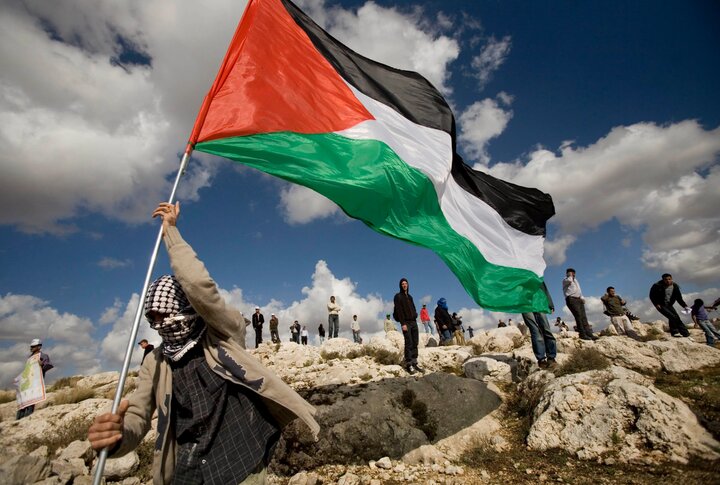
News
September 20, 2025
Why didn’t Iran vote for the two-state solution?
TEHRAN, Sep. 20 (MNA) – Tehran says lasting peace can only come through a free referendum involving Muslims, Jews, Christians, and refugees, not through an imposed two-state plan that ignores Israel’s continued rejection of Palestinian sovereignty.
TEHRAN – Iran has voiced its opposition to the widely discussed two-state solution for the Israeli-Palestinian conflict, arguing that it fails to address the core issues preventing lasting peace in the region. According to statements released by Tehran on Wednesday, September 20th, a genuine and sustainable resolution can only be achieved through a comprehensive referendum involving all inhabitants of the region, irrespective of their religion or current residency status.
This proposed referendum would include Muslims, Jews, Christians, and Palestinian refugees, allowing them to collectively decide the future of the land. Iranian officials argue that the current two-state proposal is inherently flawed, primarily because it is perceived as an imposed solution rather than a result of genuine consensus.
A key point of contention for Iran is Israel's consistent rejection of full Palestinian sovereignty. Tehran contends that the two-state solution, as it currently stands, does not adequately address this issue, potentially perpetuating the existing power imbalance and failing to guarantee genuine self-determination for the Palestinian people.
The Iranian government believes that a referendum offers a more democratic and inclusive path towards a lasting resolution. By allowing all stakeholders to participate in the decision-making process, it aims to create a solution that is more representative of the diverse perspectives and needs of the region's inhabitants.
This stance underscores Iran's long-held position on the Israeli-Palestinian conflict, which emphasizes the importance of Palestinian rights and self-determination. It also highlights the deep divisions that remain between Iran and many Western nations regarding the best way forward in achieving peace in the Middle East. While the two-state solution remains the dominant framework for international efforts to resolve the conflict, Iran's alternative proposal calls for a fundamental rethinking of the approach, emphasizing inclusivity and the need to address the underlying issues of sovereignty and representation. The prospect of such a referendum, however, faces significant hurdles, given the complex political landscape and the deep-seated mistrust between the involved parties.
This proposed referendum would include Muslims, Jews, Christians, and Palestinian refugees, allowing them to collectively decide the future of the land. Iranian officials argue that the current two-state proposal is inherently flawed, primarily because it is perceived as an imposed solution rather than a result of genuine consensus.
A key point of contention for Iran is Israel's consistent rejection of full Palestinian sovereignty. Tehran contends that the two-state solution, as it currently stands, does not adequately address this issue, potentially perpetuating the existing power imbalance and failing to guarantee genuine self-determination for the Palestinian people.
The Iranian government believes that a referendum offers a more democratic and inclusive path towards a lasting resolution. By allowing all stakeholders to participate in the decision-making process, it aims to create a solution that is more representative of the diverse perspectives and needs of the region's inhabitants.
This stance underscores Iran's long-held position on the Israeli-Palestinian conflict, which emphasizes the importance of Palestinian rights and self-determination. It also highlights the deep divisions that remain between Iran and many Western nations regarding the best way forward in achieving peace in the Middle East. While the two-state solution remains the dominant framework for international efforts to resolve the conflict, Iran's alternative proposal calls for a fundamental rethinking of the approach, emphasizing inclusivity and the need to address the underlying issues of sovereignty and representation. The prospect of such a referendum, however, faces significant hurdles, given the complex political landscape and the deep-seated mistrust between the involved parties.
Category:
Politics